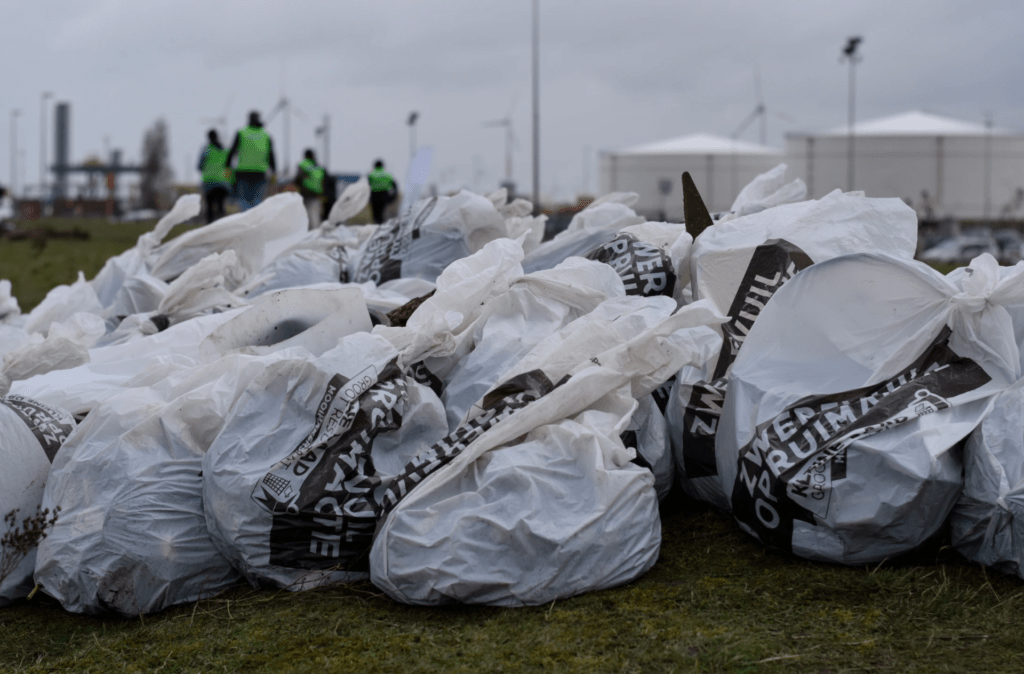Illegal dumping and litter have proven to be a problem on the verges of connecting roads in the port of Antwerp.
“Although there are already numerous service points (toilets & bins), this is not enough to prevent litter on the verges,” the Port of Antwerp said in a press release.
Almost half (45 percent) of the waste found on roadsides during impact measurements consisted of paper & cardboard, face masks and toilet paper. Beverage and food packaging came next with about 40 percent of the number of pieces of garbage.
The Port launched an awareness campaign together with Mooimakers, a Flemish initiative of OVAM (the waste agency for Flanders) against litter and illegal dumping, placing various road signs at the end of May and beginning of June along high-litter areas in the port, Verrebroek and Kallo that advised travellers to “Give your waste a lift to the bin.”
Mooimakers and Port of Antwerp checked the results of this action over the last few months and found that litter fell by around 13 percent in the direction of the road signs.
Related News
- Antwerp cancels Christmas market and New Year's Eve fireworks
- Flemish ports should prepare for possible Scottish independence, says Jambon
“The reduction is modest, but in combination with other initiatives it does contribute to the reduction of litter in the port,” said Els Gommeren, coordinator of Mooimakers.
“We see from the results that the message does reach a percentage of drivers.”
In the verges where no signs were placed, there were just as many pieces of litter before and after the campaign.
“The results have only motivated us to further intensify our collaboration with Mooimakers,” said Vincent Van Dyck, environmental expert at Port of Antwerp.
“We want to tackle [the litter problem] in the short term by putting our service points in the spotlight. We are also working hard to realise an extra lorry park on the left bank with sanitary facilities and sorting lanes. Finally, we are trying to stimulate further digitalisation of the transport sector."
The Port hopes these initiatives will together have a positive impact on the problem of litter.

